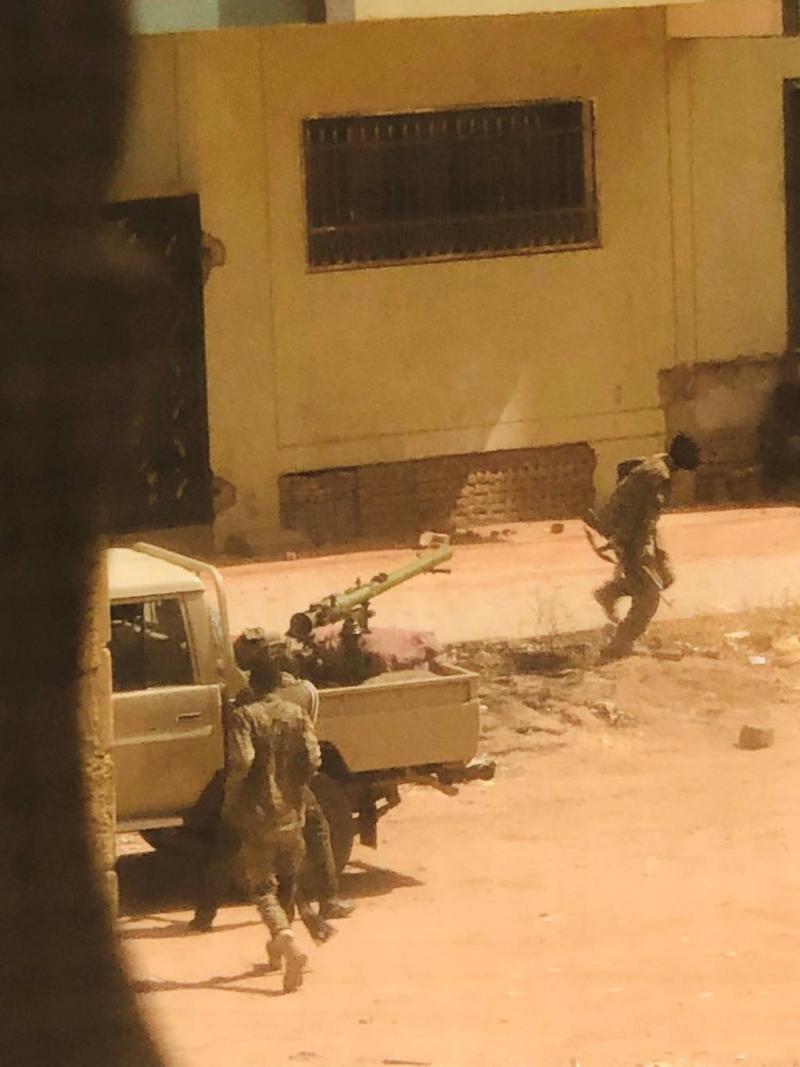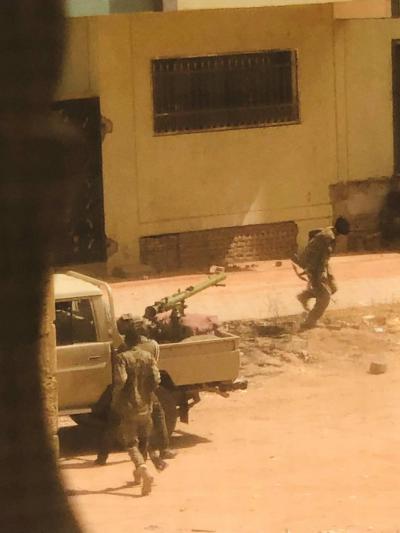The situation in Sudan erupted between the army and the Rapid Support Forces this morning, Saturday, but these developments were not sudden; the political tension and conflict had been escalating to this point on the ground. Here are the main outlines of the power struggle over the past years in Sudan.
**Who is in Charge in Sudan?**
Sudan began its transition to democracy after a popular uprising that ousted Omar Hassan al-Bashir, an Islamist shunned by the West who ruled the country for nearly three decades, in April 2019. Under an agreement reached in August 2019, the army agreed to share power with civilians until elections could be held. However, this arrangement was abruptly disrupted by a military coup in October 2021, leading to a series of mass protests demanding democracy across Sudan.
**To Whom Does the Balance of Power Tilt?**
The army has been a dominant force in Sudan since its independence in 1956, having engaged in internal wars and frequent coups while possessing significant economic holdings. During the transitional period that began with al-Bashir's ousting and ended with the 2021 coup, the mistrust gap between the army and civilian parties widened. The army received internal support from rebel factions benefiting from the 2020 peace agreement and from veterans of Bashir's government who returned to civilian service after the coup. Meanwhile, the civilian side derived its legitimacy from a persistent protest movement and support from parts of the international community. The coup returned control to the army, but it faced weekly protests, renewed isolation, and worsening economic troubles. However, Lieutenant General Mohamed Hamdan Daglo, leader of the paramilitary Rapid Support Forces and Deputy Head of the Transitional Sovereignty Council since 2019, supported the new transition plan, bringing tensions with Lieutenant General Abdul Fattah al-Burhan, Head of the ruling Sovereignty Council and Supreme Commander of the armed forces, to the forefront. Daglo is known as Hemetti.
**Lieutenant General Mohamed Hamdan Daglo (Hemetti)**
Lieutenant General Mohamed Hamdan Daglo, known as Hemetti, rose from modest beginnings to become the leader of the feared Janjaweed militia, which crushed a rebellion in Darfur, gaining influence and eventually becoming the second most powerful man in the country and one of its wealthiest. According to Reuters, when al-Bashir wanted to protect himself from his opponents during his 30-year rule, he chose Hemetti for this role. Impressed by Hemetti's cunning and combat skills, al-Bashir relied on him to deal with rebels during the Darfur conflict and elsewhere in Sudan. Hemetti's forces were legitimized, he received a military rank, and had free rein over gold mines in Darfur. The conflict in Darfur began in 2003 after rebels, mostly non-Arab, rose against the government. After supporting President al-Bashir for years, Hemetti participated in the ousting of his old ally in 2019, amid protests calling for democracy and addressing economic issues.
**What Are the Reasons for the Dispute?**
One of the main reasons is civilian pressure for oversight of the military and the integration of the Rapid Support Forces, which have a strong position within the regular army. Civilians are also demanding the transfer of the military's lucrative holdings in agriculture, trade, and other civilian sectors, which serve as a primary source of influence for an army that has long outsourced military tasks to armed factions. One point of tension relates to the pursuit of justice regarding allegations of war crimes committed by the Sudanese army and its allies during the Darfur conflict since 2003. The International Criminal Court seeks to prosecute al-Bashir and other suspected Sudanese. Another point is the investigation into the killing of demonstrators demanding democracy on June 3, 2019, in an incident that pointed fingers at the military’s involvement. The delay in releasing the investigation results has fueled anger among activists and civil groups. Civil forces demand justice for the deaths of over 125 people at the hands of security forces during protests since the coup.
**What About the Economy?**
The worsening economic crisis, leading to currency collapse and frequent shortages of bread and fuel, was the spark that led to al-Bashir's downfall. The transitional government between 2019 and 2021 implemented harsh and rapid reforms under the supervision of the International Monetary Fund, successfully attracting foreign funding and debt relief. However, billions of dollars in international support and debt relief have been frozen since the 2021 coup, disrupting development projects and burdening the national budget, exacerbating an already deteriorating humanitarian situation.
**What About Relations with Neighboring Countries?**
Sudan is located in a troubled region bordered by the Red Sea, the Sahel, and the Horn of Africa. Sudan’s strategic location and agricultural wealth have attracted regional powers, complicating the success of the transition. Several of Sudan's neighbors, such as Ethiopia, Chad, and South Sudan, have been affected by political unrest and conflicts. The relationship with Ethiopia is particularly strained due to a land dispute along the border and the conflict in the Tigray region, which has driven thousands of displaced people into Sudan, along with the Grand Ethiopian Renaissance Dam. Saudi Arabia and the UAE, the regional powers, view Sudan’s transition as a means to curb Islamist influence in the region. Together with the United States and Britain, they form the “Quad” that has mediated in Sudan along with the United Nations and the African Union. Western powers fear the establishment of a Russian base on the Red Sea, an initiative that Sudan’s military leaders have expressed openness to. Egypt, which has deep historical ties with Sudan and a close partnership with its army, is pursuing an alternative path with groups supporting the coup.




